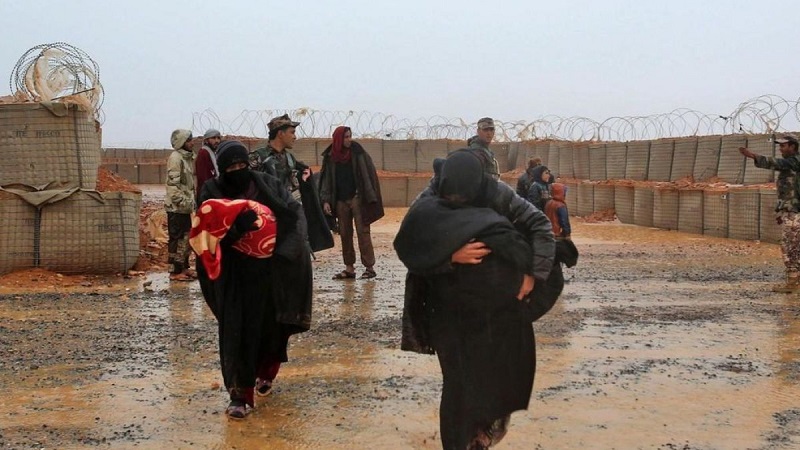In a statement released on Thursday, Amnesty International called on the Jordanian authorities to provide medical care to the refugees in Rukban camp, located on the border with Jordan in the Syrian Desert, in anticipation of a possible outbreak of the coronavirus in the area.
Lynn Maalouf, director of Middle East Research at the organisation, urged Jordanian authorities to: “Allow those seeking medical treatment to access facilities in Jordan, and also allow humanitarian aid and essential services to reach the area.”
Maalouf warned that the lack of medical care in the Rukban region between Syria and Jordan: “Puts thousands of lives at risk amid the coronavirus crisis.”
The organisation stressed that due to the lack of healthcare services provided for mothers, pregnant women who need a caesarean section must go to the areas controlled by the Syrian regime to deliver their babies. However, after the delivery, the authorities prevent them from returning to the camp.
Amnesty International pointed out that there is only one medical centre in the Rukban area, where a few doctors and nurses and only one midwife are providing services to a camp inhabited by around 10,000 displaced people.
On 20 April, Amman announced that Foreign Minister Ayman Safadi informed UN special envoy to Syria, Geir Pederson, that he would not allow the entry of humanitarian aid to the Rukban camp.
Safadi stressed that: “Jordan will neither allow the entry of aid to the Rukban camp via its territory nor the passage of persons from the camp to the kingdom for any reason,” confirming that “protecting the Jordanian citizens from the coronavirus pandemic is the utmost priority.”
Jordan regards the gathering of displaced Syrians in the Rukban area on Syrian soil as an international and Syrian responsibility and that any humanitarian or medical assistance needed by the camp’s residents must come from the Syrian interior.
On this issue, Maalouf expressed: “Although the Jordanian authorities have the right to take the necessary measures to protect the population from the coronavirus pandemic, they must not endanger the lives of others while doing so.”
She explained that the displaced people in Rukban camp: “Have been suffering a shortage of food, water and medicines for more than four years,” adding that the situation has deteriorated in the last two years.
Maalouf emphasised that: “The Syrian and Jordanian governments must ensure the transfer of humanitarian aid to the camp without restrictions.”
Jordan, which borders Syria, closed the Rukban crossing in 2016 following a bloody attack on Jordanian soldiers, for which Daesh claimed responsibility.
The transportation of aid from areas controlled by the Syrian regime to the camp, which is located in a region where US-backed fighters are stationing, requires permission.
In February of last year, Damascus and Russia, the regime’s main supporter, announced the opening of routes to exit the camp and urged its residents to leave.
According to the United Nations, during the first months of last year, more than half of the camp’s residents have left.
In February of last year, a convoy of 133 trucks arrived in the camp and distributed food, clothing, healthcare and medical supplies.
It was the second aid batch to reach the camp in three months.
Source: Middle East Monitor






 WhatsApp us
WhatsApp us 

